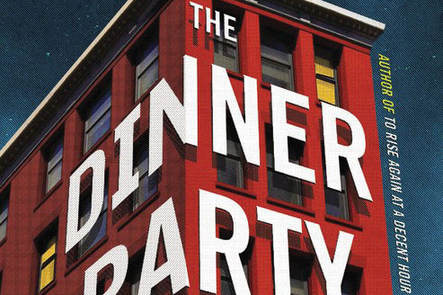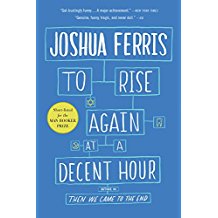 Joshua Ferris’ recent collection of short stories features pieces previously published, over half of them in the New Yorker and one based on a character from Ferris’ first novel, the pop-lit crossover “Then We Came to the End.” With a singular “gray” humor, Ferris shades 11 unmoored but uninspired Walter Mittys of a more modern capitalism. Each story offers an objective glance at dissatisfaction, each character disappointed with the reality of his or her life and anxiously, ineffectively attempting a rewrite. He or she just can’t seem to decide. In “The Breeze,” spring stirs feelings of restlessness in Sarah, unsure what she wants from her husband and dreading another mediocre arrival at a predictable destination. She imagines the perfect day, picnicking and having sex in a wooded glade, enjoying drinks outdoors with friends until late evening. She becomes increasingly tormented by the couple’s inability to live up to spring, as they wander instead, mentally pushing and pulling their way through an evening of misunderstandings and missed opportunity. In “Fragments,” a wife butt-dials her husband, and he overhears shards of a conversation between her and a lover. The husband spends the rest of the story waiting, for her late arrival from work, for her acknowledgment, for her to say anything at all. The city itself offers more of the same – oblivious mumblings, swarming bits of conversations, all amplifying the shattering sense of displacement he has swallowed. Ferris skewers the falsehood, taking barbs at mundane rituals, party protocol, coupledom and cubicle culture. His characters, though exhaustingly self-conscious, remain self-delusional. All but perhaps one. Joe Pope, the title character in “More Abandon (or Whatever Happened to Joe Pope)” goes off the deep end in an unrecoverable fashion. A “dependable” character, Joe often works late at the firm, but tonight he also tries on the other offices for size, borrowing binoculars to look out the windows, stealing and smoking cigarettes, exposing his heart to a married, pregnant co-worker’s voice mail, and redecorating/switching one worker’s dated shrine to her dead child with another’s tiny pig collection. As I imagined the result of Joe’s handiwork, I laughed against my will. His static awareness and then inevitable acceptance that he will be fired make him one of the more redemptive characters. Joe has commitment, and he efficiently dissolves the mask of everyday interaction, making for an odd hero (one who commits to taking his licks) in this collection of everyday dysfunction. In general, Ferris’ characters are dislikable. When a domineering husband confronts his wife’s best friend, she tells him, “I think Amy made a terrible mistake marrying you.” And he’s just one of an ensemble of stereotypical asses engaging in a predictable level of self-sabotage. They each carry the requisite existential disappointment, driven by a fear that they are missing out on something more. Ferris beadily nails the inner monologue accompanying our awkward quotidian lives. Is this a cautionary tale for the clueless? As the author explains in a recent interview, “We have allowed ourselves to some extent to live a fiction, to live a lie, to believe that things are not as dark as they can be. And that’s not the case with my characters. I feel very pressed to be truthful.” If I were pressed to choose the Dinner Party’s rolling credits theme, you would hear the same question with which its characters incessantly grapple: “Is that all there is?” While there’s nothing exceptionally wrong with this kind of bleak honesty, it takes greater commitment to imagine a soulful response to our last character Jack’s lament, “What does a real man do – and I mean a real man, now, what does a real man do – when he knows he’s done something wrong?” The reader is left to fill in the blank. - Ann Scott This review originally appeared in the Aspen Daily News on December 28, 2017.
0 Comments
Your comment will be posted after it is approved.
Leave a Reply. |
Adult News & reviewsLibrary news, info about upcoming events, reviews of books and films, and a look at the topics that affect us as a library. Archives
July 2023
|
General |
Borrowing |
About |




 RSS Feed
RSS Feed
